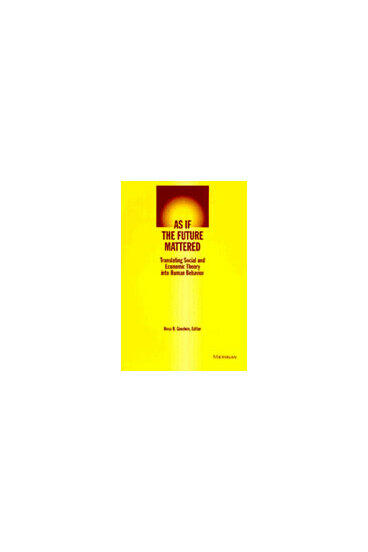As if the Future Mattered
Translating Social and Economic Theory into Human Behavior
Explores how society can learn to care about the future
Description
There has never been a better time to explore the ways in which values relating to the future can be preserved and nurtured despite contemporary capitalism's tendency toward shortsighted selfishness. Prevailing beliefs in the 1980s were especially permissive regarding notions of individualism. While the concern for the future displayed by human beings throughout history may not be less today than at other times, a wide variance persists in how individuals, firms, and other institutions indicate concern for the future--some act as though only concerned about tomorrow, others as though concerned for perpetuity. Thus it is especially relevant now to inquire what can be done, through changes in institutional arrangements or fashions of thought and perception, to encourage future-regarding tendencies.
These themes are explored in twelve previously unpublished essays by people ranging from the well-known business analyst, Michael Porter, and the past President of the World Bank, Robert McNamara, to Zbigniew Bochniarz, a leading architect of "green plans" in East Central Europe since the fall of the Berlin Wall, and Lisa Gravitz, the President of Co-op America, an organization that assists U.S. businesses adopting socially responsible rules and behaviors. Other contributors include a lawyer, sociologist, political scientist, businessman-turned-foundation director, and three economists.
The volume will be of interest to businesspeople, economists, environmentalists, political scientists, and ethicists.
Neva R. Goodwin is Co-Director and Co-Founder of the Global Development and Environment Institute, Tufts University.
Neva R. Goodwin is Co-Director and Co-Founder of the Global Development and Environment Institute, Tufts University.

